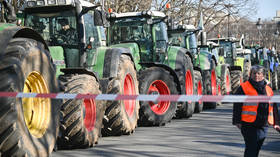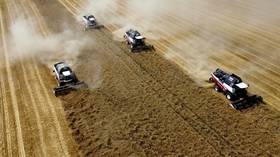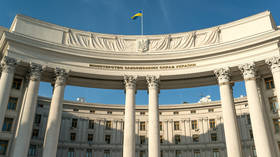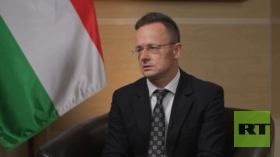EU extends tariff-free trade with Ukraine

The European Parliament has extended the suspension of all tariffs and quotas on Ukrainian agricultural food imports to the EU until June 2025, it announced on Wednesday.
The decision is in line with a European Commission proposal in January to remove tariffs on Ukrainian farm produce until June 2025 with an “emergency brake” for poultry, eggs and sugar.
This would mean that tariffs could be re-imposed if inflows exceed the average levels of 2022 and 2023.
European lawmakers have also extended import caps on oats, maize, groats and honey.
The deal also requires the European Commission “to take action if there is a surge of Ukrainian imports of wheat.”
The decision, however, snubbed a push led by Poland seeking tougher restrictions on Ukrainian grain and other agricultural imports.
Warsaw unilaterally blocked Ukrainian food products from its markets last year in a bid to address problems created by the EU decision to open its borders to imports of Ukrainian produce.
In 2022, the EU suspended tariffs and quotas for Ukrainian agricultural produce to enable grain from Ukraine to be shipped onward to global markets.
However, a massive influx of cheap agricultural products from the embattled country flooded Eastern European countries. Grain imports from Ukraine have been at the core of farmer protests that have swept the EU in recent months. Last month, agriculture producers asked the European Parliament to limit free-trade measures, saying they endanger the bloc’s economies and disrupt the market.
In February, Polish Prime Minister Donald Tusk did not rule out “temporarily closing” the border with Ukraine amid an ongoing blockade by protesting farmers.
“We want to help Ukraine, but we cannot allow this help to bring very negative effects to our citizens. We are constantly looking for a solution that will protect the Polish market from being flooded with clearly cheaper agricultural products [from Ukraine],” he said, as quoted by news broadcaster RMF24.
European Agriculture Commissioner Janusz Wojciechowski cited statistics in January showing that the EU agriculture sector had lost over €19 billion ($20.6 billion) between 2022 and 2023 due to liberalized trade with Ukraine. It was initially intended that Ukrainian exports would be shipped onward to Asia, Africa, and the Middle East, he noted, and called for measures to be taken to divert the flows to these markets.
For more stories on economy & finance visit RT's business section













